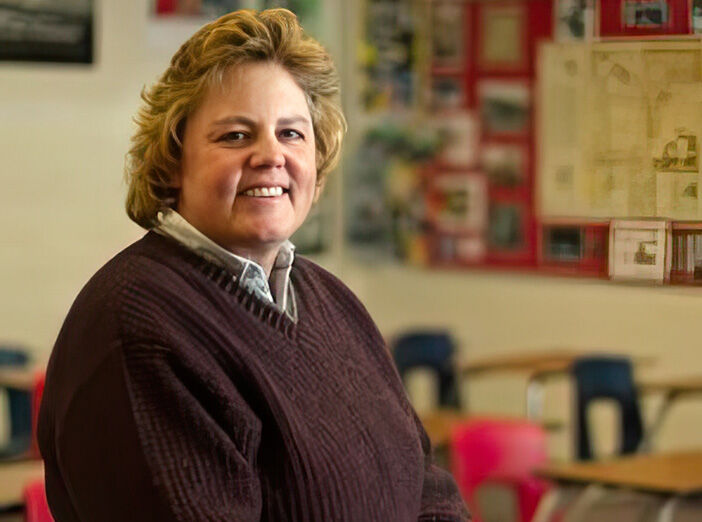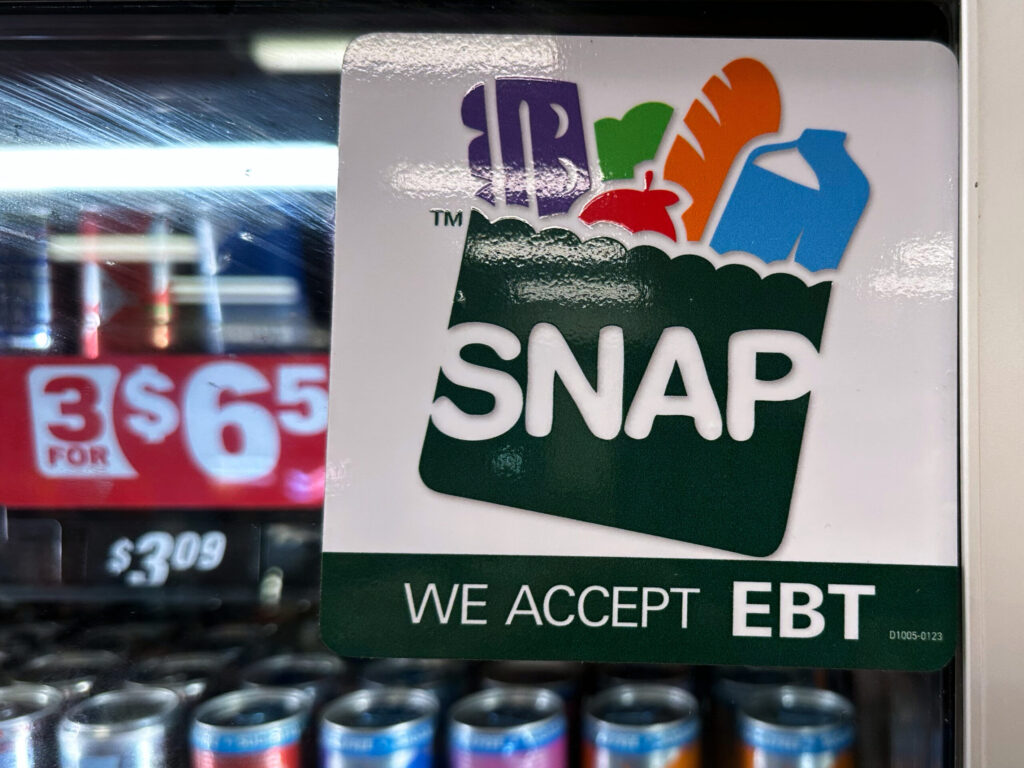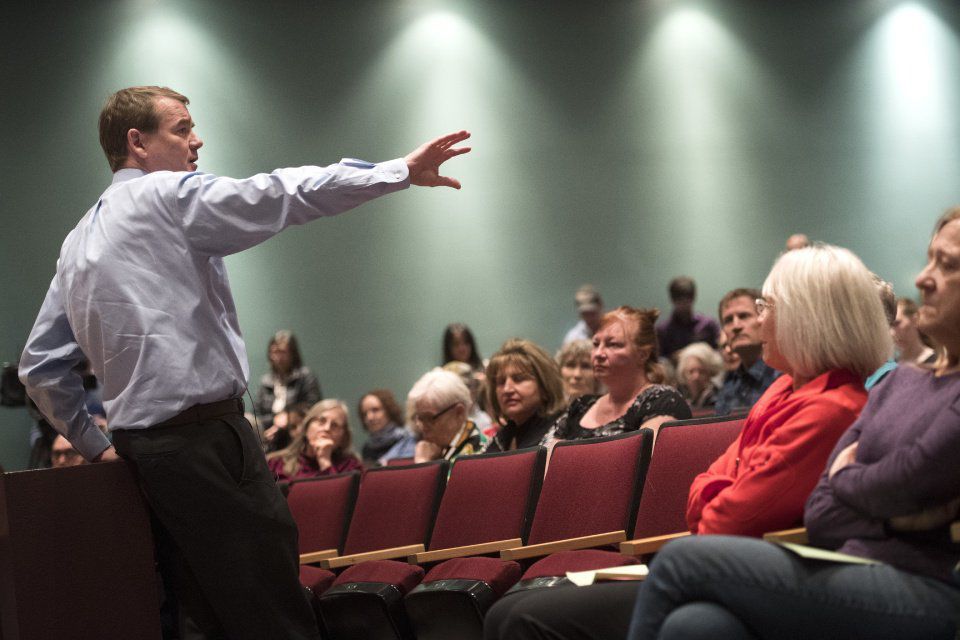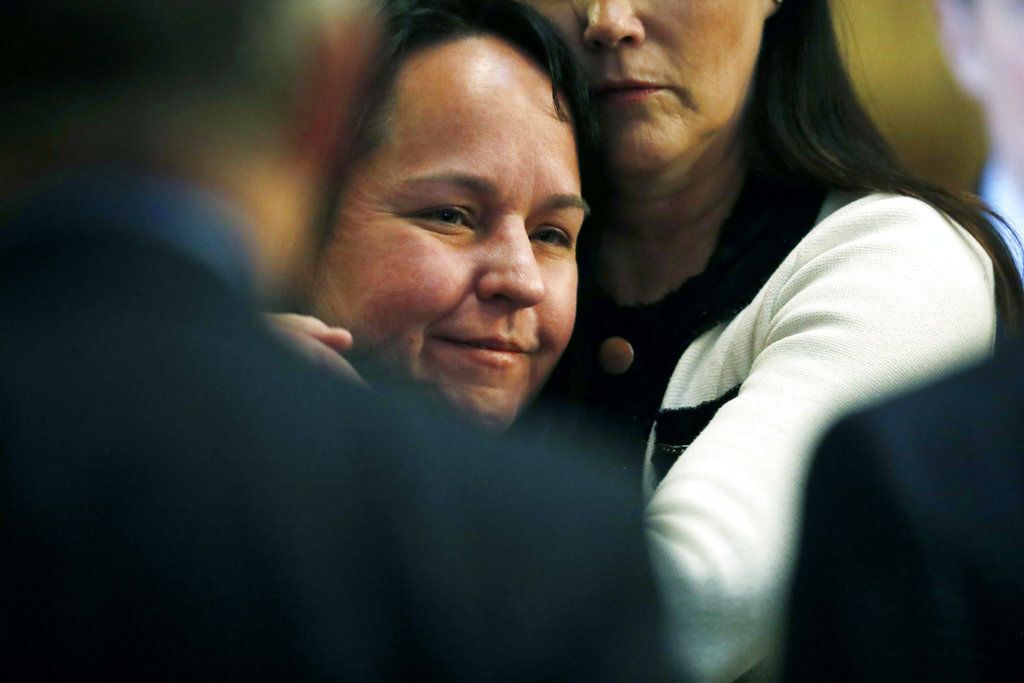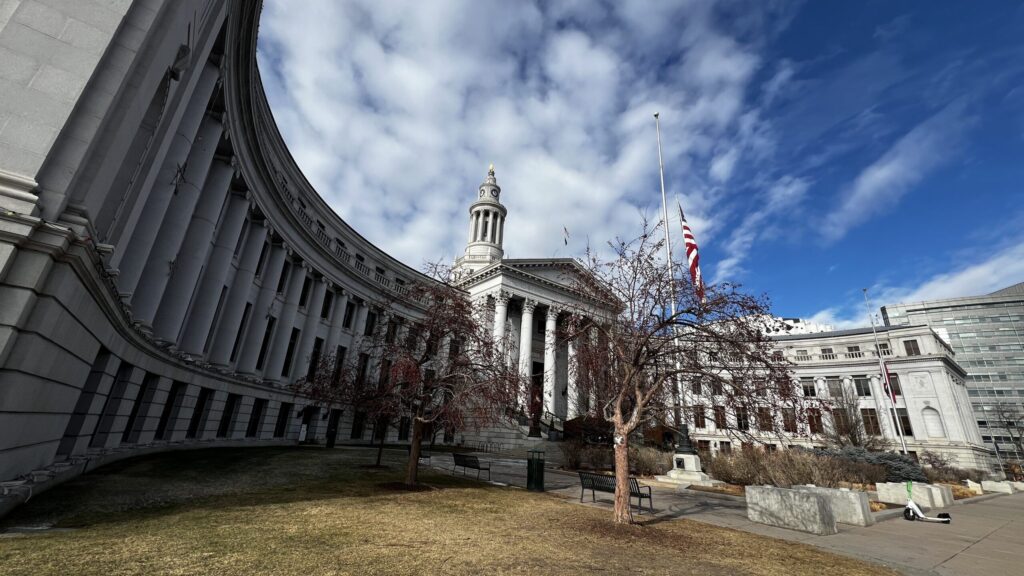DougCo board wastes no time, will deal with voucher program Monday
The Douglas County school board plans to discuss and potentially end the district’s controversial voucher program in a special meeting on Monday, Dec. 4.
Board President David Ray announced that the board would take up the voucher program on Monday at the end of the board’s Tuesday night meeting, which included the swearing-in of four new board members, all of whom campaigned on a pledge to repeal the voucher program.
One new board member, Kevin Leung, will not be present at that Dec. 4 meeting. Leung told Colorado Politics on Tuesday that he would recuse himself from voting or other deliberations regarding the voucher, continuing a pledge he made during the campaign. Leung is a plaintiff in the lawsuit, Taxpayers for Public Education v. Douglas County School District.
The Choice Scholarship program, initiated by the previous board in March 2011, has been tied up in the courts almost from its first day. The voucher program would allow Douglas County students who have resided in the county and attended a DougCo public school for one year a voucher, valued at around $5,000, to pay for tuition at a private school. The private school could be secular or religious and does not have to be located in Douglas County, the fifth wealthiest county in the nation.
A Denver District Court slapped the program with an injunction that prevented its launch, but the Colorado Court of Appeals reversed that decision. In 2015, the Colorado Supreme Court ruled the program unconstitutional, based on the state’s Blaine Amendment, which forbids the use of taxpayer dollars for sectarian, i.e. religious education. At least three dozen states have similar amendments in their state constitutions.
The DougCo district, with $1.8 million in donations from the Daniels Fund and the Walton Family Foundation, appealed to the U.S. Supreme Court in December 2015. Justice Antonin Scalia died the following February, so the appeal sat in limbo until June of this year.
In May the U.S. Supreme Court ruled in a case also based on Blaine, Trinity Lutheran v. Comer. In that case, a child care center based at a Lutheran church sued the state of Missouri when the church was denied a grant for playground materials. The state’s Department of Natural Resources cited the law when denying the church the grant. The U.S. Supreme Court ruled in favor of the church, and a month later ordered the Colorado Supreme Court to reconsider its decision.
The case is now pending with the state Supreme Court. According to Cheryl Stevens, clerk of the Colorado Supreme Court, a filing from the DougCo school district is due on December 18.
Should the board vote to repeal the program, which is all but certain, what happens after that is uncertain.
Alan Chen, a professor of constitutional law at the University of Denver’s Sturm College of Law, said such situations are fairly straightforward and not uncommon. (Chen helped prepare the plaintiffs for oral arguments before the Colorado Court of Appeals.)
There’s no requirement that the Colorado Supreme Court change its ruling based on the order from the U.S. Supreme Court, Chen explained Thursday. The U.S. Supreme Court order only means that the Colorado court has to seek new briefs from both sides and allow both sides to re-argue the case. After that, Chen said the state court could still reaffirm its 2015 decision.
The minute the voucher program is repealed, Chen said, the legal case becomes moot, or irrelevant. The school district, under the direction of the school board, could file a motion to dismiss the case, and the plaintiffs could do the same.
But continuing the case, which the plaintiffs could pursue in order to get a second ruling from the state court, would have no possible effect because the policy would no longer exist, Chen said.
“It becomes truly an abstract question, with nothing to rule on.”


